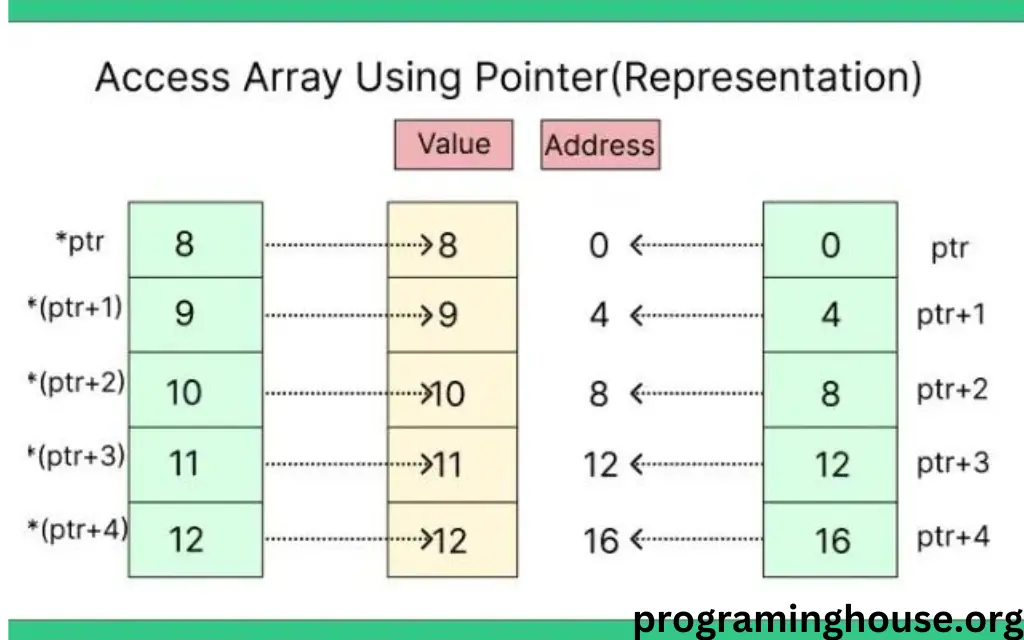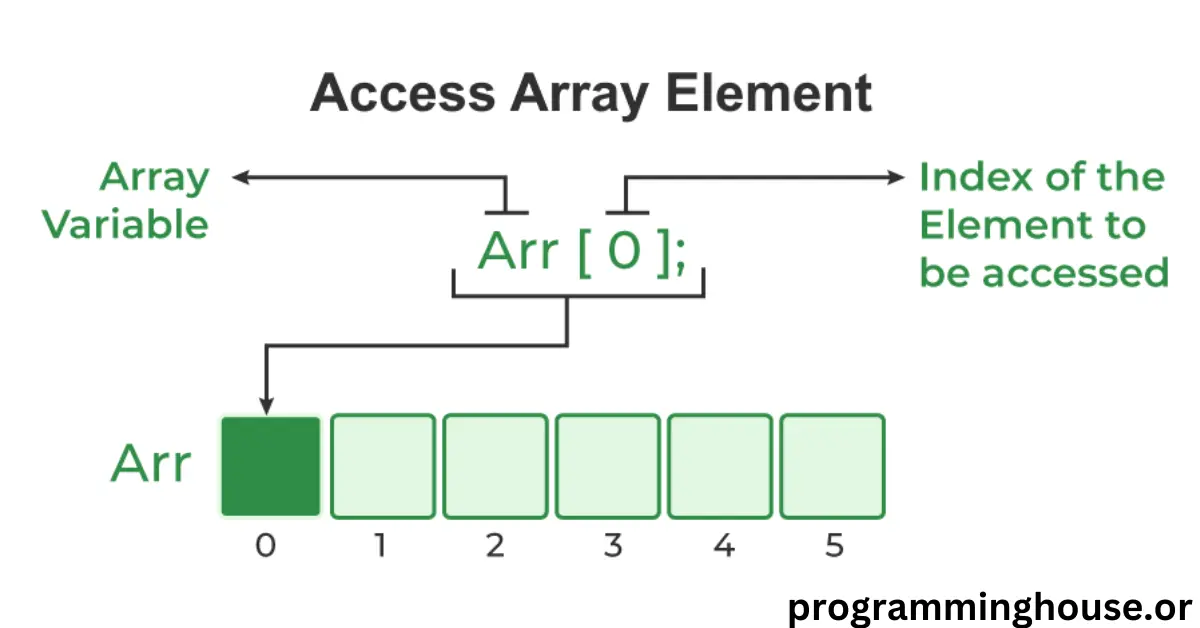Arrays are one of the fundamental data structures in C, admitting you to store and manipulate a collection of elements of the unchanging type. Accessing these pieces is a honest process, but understanding by means of what it everything is crucial for adept and error-free prioritize. In this item, we’ll survey by virtue of How to access array elements in c, utilizing two together elementary and advanced techniques.
1. Introduction to Arrays in C

An array is a adjacent block of thought that holds a established number of elements, all of that are of the same data type. Arrays maybe of some type, such as integers, floats, or even forms. To declare an array, you designate the type, name, and the number of components:
int arr[5]; // Declares an array of 5 integersIn this example, arr is an array capable of holding 5 integers. The elements in this array are indexed from 0 to 4.
2. Accessing Array Elements
Every element in an array maybe accessed utilizing its index. The index is established within square brackets [] after the array name. Remember, array indexing in C is nothing-located, signification the first material is at index 0.
arr[0] = 10; // Assigns 10 to the first element
arr[1] = 20; // Assigns 20 to the second elementYou can also access and manipulate array elements by using these indices:
int x = arr[0]; // Retrieves the value of the first element
printf("%d", arr[1]); // Prints the value of the second element3. Iterating Over an Array
In most cases, you’ll want to perform operations on each element of the array. This is typically done using loops:
for(int i = 0; i < 5; i++) {
arr[i] = i * 2; // Sets each element to twice its index value
}In this loop, i takes on values from 0 to 4, allowing you to access each element of the array.
4. Pointer Arithmetic for Accessing Elements
In C, arrays and pointers are closely related. The name of an array is a pointer to the first element of the array. This relationship allows you to access array elements using pointer arithmetic:
int *p = arr; //
int firstElement = *p; // Equivalent to arr[0]
int secondElement = *(p + 1); // Equivalent to arr[1]Here, p is a pointer to the first element of arr. By incrementing the pointer (p + 1), you move to the next element in the array.
5. Accessing Multidimensional Arrays
C also supports multidimensional arrays, which are arrays of arrays. For example, a two-dimensional array can be declared as follows:
int matrix[3][3]; // Declares a 3x3 matrix (2D array)To access an element in a multidimensional array, you use multiple indices:
matrix[0][0] = 1; // Sets the first element of the first row
int val = matrix[2][2]; // Retrieves the last element of the last rowSimilarly, you can use nested loops to iterate over all elements in a multidimensional array.
for(int i = 0; i < 3; i++) {
for(int j = 0; j < 3; j++) {
matrix[i][j] = i + j; // Example operation on each element
}
}6. Common Pitfalls
When working with arrays, some common mistakes include:
- Out-of-bounds access: Accessing elements outside the valid range of indices (e.g.,
arr[5]in a 5-element array) leads to undefined behavior and can cause program crashes. - Uninitialized arrays: If you don’t initialize your array, it may contain garbage values.
7. Conclusion
How to access array elements in c is a fundamental idea that underlies many more complex programming tasks. By understanding by what method to cooperate arrays, you can efficiently store and maneuver collections of dossier, whether you’rework with natural one-dimensional arrays or more complex having many dimensions arrays. Remember to continually check your array bounds to prevent common errors, and influence pointer arithmetic place appropriate to record more efficient and flexible code.



